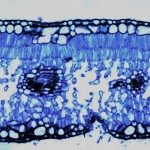Link to Pubmed [PMID] – 18991540
Foodborne Pathog. Dis. 2009 Jan-Feb;6(1):49-56
There was an outbreak of cholera in Cameroon during 2004 and 2005; the epidemic began in Douala in January 2004 and spread throughout the south of the country. The World Health Organization (WHO) reported 8005 cases in 2004 and 2847 cases in 2005. Five hundred eighty-nine stool samples were received in the Pasteur Centre of Cameroon and 352 were microbiologically confirmed to be positive for Vibrio cholerae O1. Isolated strains were tested for their antimicrobial susceptibilities. All the strains were multidrug resistant and predominantly showed a common resistance pattern at the beginning of the outbreak. Tetracycline, recommended by the WHO for treating cholera in adults, was effective against all the strains tested. Cotrimoxazole (trimethoprim/sulfamethoxazole), previously a first-line treatment in children, was ineffective in vitro for all the clinical isolates and was quickly replaced by amoxicillin. Ampicillin resistance emerged at the end of 2004 and was the leading resistance pattern observed in the second half of 2005. This therefore represented the second major resistance pattern. These two major resistance profiles were not associated with patient characteristics (sex and age) or to the geographic origin of strains. However, there was a highly significant relationship between resistance patterns and the year of isolation (p < 0.001). The strains possessed genes ctxA and ctxB encoding the two cholera toxin subunits and were very closely related, irrespective of their antimicrobial resistance patterns. They were not differentiated by molecular typing methods and gave similar ribotyping and pulsed-field gel electrophoresis patterns.



